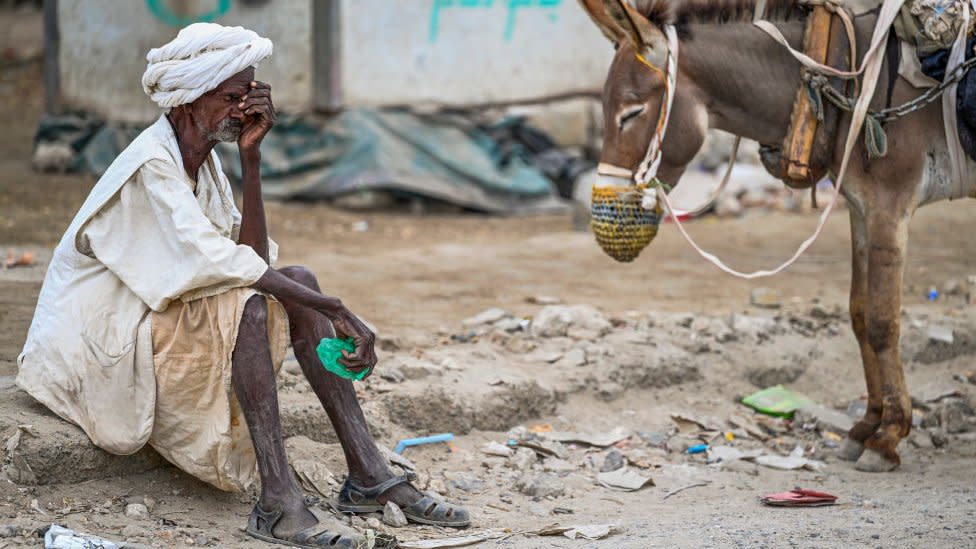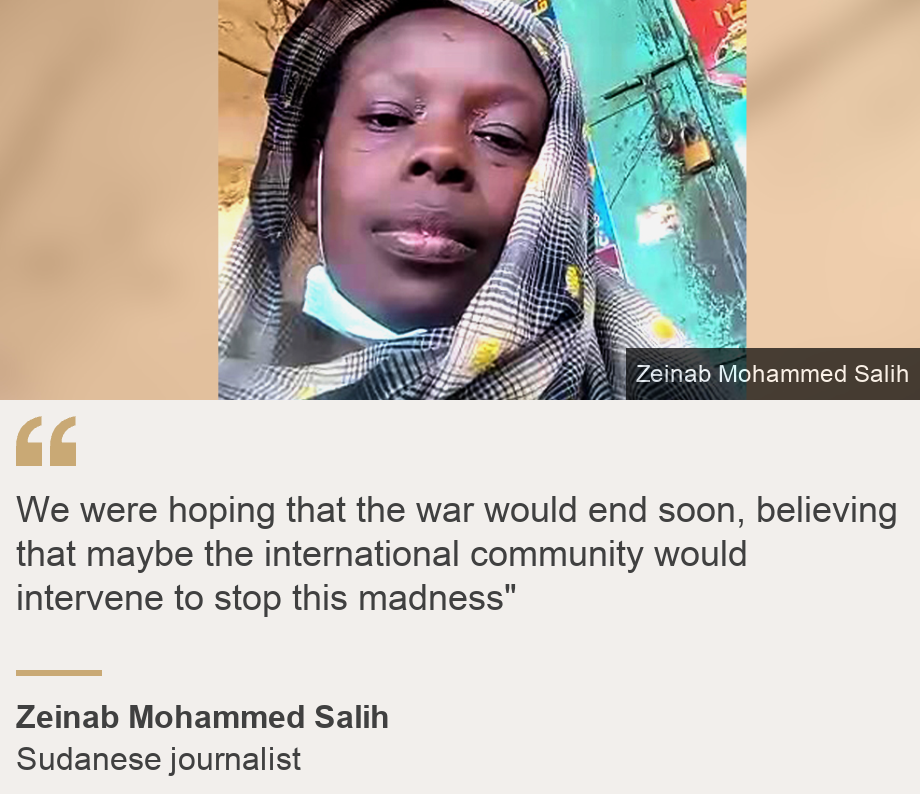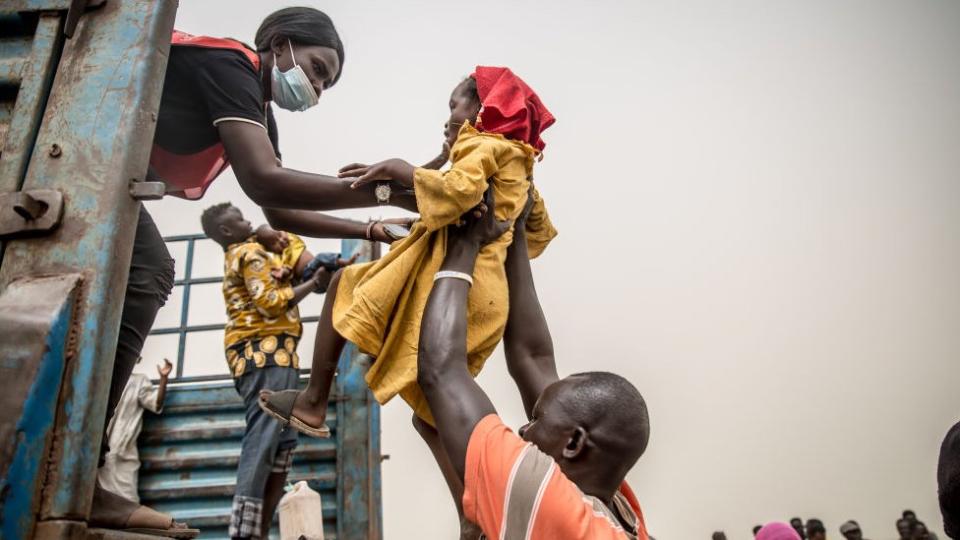Sudan conflict: A front-row seat to my country falling apart

I'm not supposed to cry as a journalist when I am covering stories, but I have been crying a lot lately.
Before December, when I travelled on a reporting trip from my home in the Sudanese city of Omdurman - just across the river from the capital, Khartoum - the only people I would see from my window were those carrying the dead bodies of loved ones on their shoulders.
They were looking for a roadside space to bury the corpses as going to a proper cemetery was too dangerous.
The dead civilians, many killed by bullets and shells, were the collateral damage of a war that began exactly a year ago, when Sudan's two leading military men fell out over the country's political future, after seizing power together in a coup in 2021.
I have lost many friends and acquaintances.
The bustle of my close-knit, working-class neighbourhood was replaced by silence, sometimes interrupted by the sound of a military plane foreshadowing an airstrike as the army would be targeting an area controlled by fighters from the rival Rapid Support Forces (RSF) paramilitary group.
People would flee their homes fearing that they would be hit.
On 15 April last year, I remember looking forward to breaking the Ramadan fast in the evening with some fellow journalists. I was planning later to reunite with a long-lost childhood friend.
We never met and I have not seen him to this day. He left the country while I remained.

I began to feel uneasy that morning when I started seeing social media posts about RSF attacks near the city. Then I read about clashes at the international airport. I still thought that the violence would stop.
But when a third friend posted that there was fighting at the presidential palace, I knew that this was war.
While many others decided to leave the city, my family and I stayed put. We were hoping that the war would end soon, believing that maybe the international community would intervene to stop this madness, but the suffering of the Sudanese people was seemingly ignored.
Residents not only feared the street combat that was taking place, but also the armed men - from both sides - coming to loot. They stripped homes, taking everything from cars to spoons.
I have been back to Omdurman but have not been able to reach my home. I have received reports that even its doors and windows have been taken off and carried away.
As the conflict wore on, people began to look thinner and paler, due to the scarcity of food and drink as little aid was reaching the city. The only small market in my neighbourhood was hit by airstrikes as the army tried to flush out the RSF.
The remaining hospitals were only treating the war wounded, those with other conditions were not being seen. My diabetic grandmother died as she could not get treatment.
I too got very sick because of a lack of food.
The only clinic that was functioning was a 30-minute walk away.
My cousin accompanied me and I had to stop in the shade every two minutes as my energy was spent.
The one doctor on duty prescribed me some medicine which, thanks to friends in Europe, I managed to get my hands on.

While things have been bad in Omdurman and Khartoum, the worst-affected area is the western region of Darfur, where the conflict has assumed an ethnic dimension.
I came here just over three months ago to report what was going on, following last year's mass killings in cities like Geneina, the capital of West Darfur state.
The UN said that more than 10,000 people died in the city during two massacres.
People have told me of ethnically targeted killings and sexual violence. They remain traumatised, months afterwards.
Everybody cries when I ask them about their experiences. I too was unable to hold back the tears, and I have been struggling to sleep.
My nights were also disturbed on a trip to Fasher, the capital of North Darfur, as airstrikes hit the city at night shaking everything and waking everyone up.
I have been trying to tell our story but it feels that the world is looking away. International attention is focussed on Gaza and before that it was on Ukraine.
I feel sad and angry.
The international community must intervene to stop this war by putting pressure on the two sides and their regional backers. Without pressure, I cannot see an end.
It is heart-breaking seeing my country fall apart, and there is a danger that things could get worse, with ordinary people being armed by both sides.

